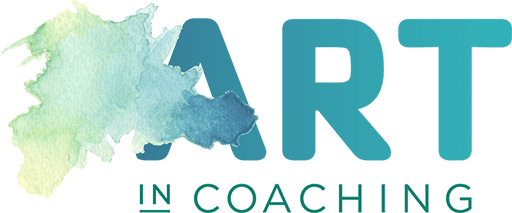
In this second blog in the series around Trauma and Art Based Coaching I explore why we should coach with trauma in mind.
Trauma is not something that we naturally think of as relevant in the coaching space. It is, after all, the preserve of the therapeutic space. However, Julia Vaughan Smith in her book ‘Coaching and Trauma – from surviving to thriving’ makes a very good case for us all to be trauma informed.
I also feel that as an art based coach it is important to be trauma informed due to the ability of art to unlock implicit memories and have the potential to bring trauma into the art based coaching space. This is because the part of the ‘self’ that carries the trauma (the feelings and body memories) are suppressed and they are out of our everyday conscious awareness. Art easily taps into this space and can bring it to the fore.
The pandemic and trauma
In addition, Covid-19 has placed great stresses on all of us as we navigate our way through living with this virus. It has impacted all aspects of our lives. For many of us it will be just that, a stressful year (or two) in our lives, for others it may be a traumatic event and for a proportion they may end up with trauma. Trauma is part of being human and has always been there. However, as we experience the pandemic we have become more aware of trauma and the impact such a far reaching event is having on us and our clients. The varying ways in which the pandemic has affected us all will undoubtedly result in more trauma related responses in our clients, including overwhelm, increased anxiety and stress as well as grief and potentially PTSD.
Coaching not therapy
Being trauma informed is not coaching trauma, it is having an understanding of trauma, what it is and how it may present itself in coaching. This then allows the coach to work appropriately, within coaching boundaries and in a way that supports and contributes to the healing process and the coaching aims.
When we are trauma informed it also allows us to be aware of when a client’s *survival self may be present and how much of their *healthy self is available. It is the healthy self of the client where coaching adds value. The survival self is not coachable as it is not open to change. It has been developed to keep the client safe and is very good at providing those defence mechanisms. It is not a bad self, it just won’t be helpful when trauma is not present in the ‘here and now’ but it should be respected.
Being trauma informed
To be able to be trauma informed Julia Vaughan Smith outlines what we need to understand and know to ensure we are using the appropriate coaching and art based coaching interventions. We need to:
- Understand how trauma affects our neuro-physiological systems and its lasting impact on how we experience, think and feel about ourselves, about those around us and how we relate to others
- Be comfortable when clients choose to share painful experiences, particularly early experiences, and show their emotions
- Know how to work with the ‘then and there’ (trauma related experiences) in the ‘here and now’, using clients’ autobiographies sensitively
- Recognise when the survival self is present and how to respond, including our own survival selves. The survival self cannot be coached
- Coaching our clients’ healthy selves from our own healthy selves
- Be able to recognise when the coaching relationship has become unhealthy and knowing how to respond
- Being able to challenge clients’ narratives and identities they may have about themselves
- Know when other interventions such as trauma therapy may be more appropriate or when to refer to another coach if they trigger something in ourselves
Furthermore, we also have to understand that we too may carry our own trauma which may show up in the coaching space or our work with organisations. We can use self-reflection and supervision to explore and deepen our understanding of ourselves, our patterns and behaviours to see what our survival strategies and triggers may be. We can also use the therapeutic space if it is important for our wellbeing.
 Join our workshop
Join our workshop
If you would like to start to become trauma informed why not join Julia Vaughan Smith and myself on our online workshop ‘Trauma and Art based Coaching’
Previous blog: What is trauma?
Next blog: Is trauma present?
*Note: The terms trauma self, survival self and healthy self come from Professor Franz Ruppert’s model for conceptualising trauma www.franz-ruppert.de

2 comments on “Why coach with trauma in mind?”